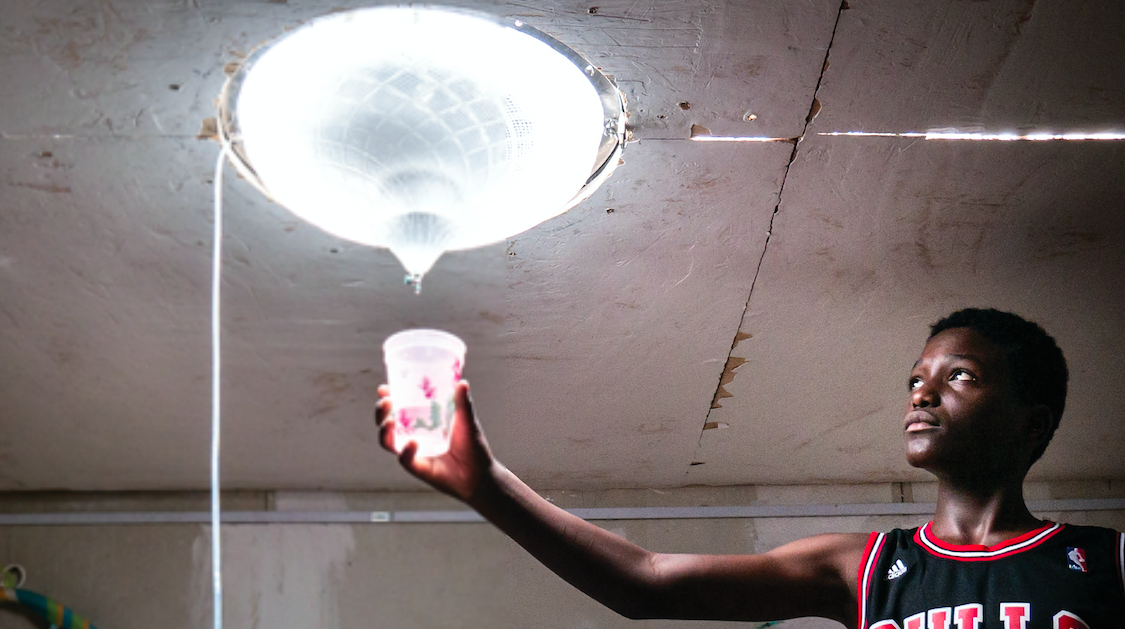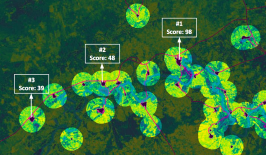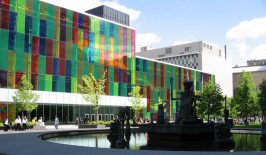In recent years, Chile has taken large leaps in the development of affordable housing for low and middle income households. However, there is a large disparity in the location, quality and habitability of this housing. For some, access to reliable electricity, water and lighting is still a challenge.
Now, a New Zealand based architectural designer has come up with an innovative device aimed to alleviate at least some of these problems. Henry Glogau has created a striking skylight, which not only provides lighting without the need for a mains connection, but also desalinates seawater for consumption.
As a long, narrow country, Chile has an extensive coastline and so access to the sea is often common. Although many Chileans live in formally established settlements with easy access to clean water, it is said that around 110,000 families live in around 800 informal settlements often built on the outskirts of larger cities. In Santiago, the capital, development of the traditional downtown area has seen poor residents being displaced by wealthier ones, often to these outlying, informal settlements.
In places like this, electricity often comes from unofficial ‘hacked’ connections into the main grid, which offers both a dangerous and unreliable source of electricity. Water too is not reliably available, and long journeys may be required for access to clean water. Finally, many Chileans in informal settlements also board up their windows for privacy and security, limiting the amount of natural light. This means that even during the day, informal homes can be difficult places to meet, work or study.
Glogau’s design aims to use Chile’s abundance in two natural resources – seawater and light – to create a device that can help mitigate these issues. During the day, the light is powered by a small solar panel, with the ‘bulb’ of the light also functioning to desalinate seawater via the evaporation and condensing process. Water can then be tapped from the light to be used for drinking, cooking or other purposes.
However, during the night, when light is in even more demand, the Skylight can continue to function. The salt generated from the desalination process is stored within special tubes containing copper and zinc. The salt reacts with these metals to create twelve ‘salt batteries’ which can continue to power the light at night.
Overall, the single Solar Desalination Skylight can produce up to 440ml of purified water a day, with the salt content reducing from around 36,000 parts per million to only 20. The salt batteries themselves can then consistently provide around 9.53 volts during the night, enough to power an LED light strip.
The Skylight itself not only provides illumination for living, work and study, but also creates a striking feature in the living space. The collected desalinated water also creates a morphing dappled effect which changes throughout the day according to how much water is collected. Glogau claims this means the light provides different mood lighting at different points of the day.
Currently, prototype Skylights are being tested in informal settlements in Antofagasta, Chile in cooperation with local NGOs. However, informal settlements are not unique to Chile. According to the United Nations, around 1 billion people live in slum or informal settlement conditions, with roughly 370 million in Eastern and South-Eastern Asia, 238 million in sub-Saharan Africa and 227 million in Central and Southern Asia. Naturally, not all of these have access to seawater, but hybrid products such as the Solar Desalination Skylight could still point the way to providing essential amenities that can help improve living conditions and opportunities, at an affordable cost.
Currently, the Solar Desalination Skylight is currently one of six finalists of the 2021 Lexus Design Award, with the winner due to be announced in April.








